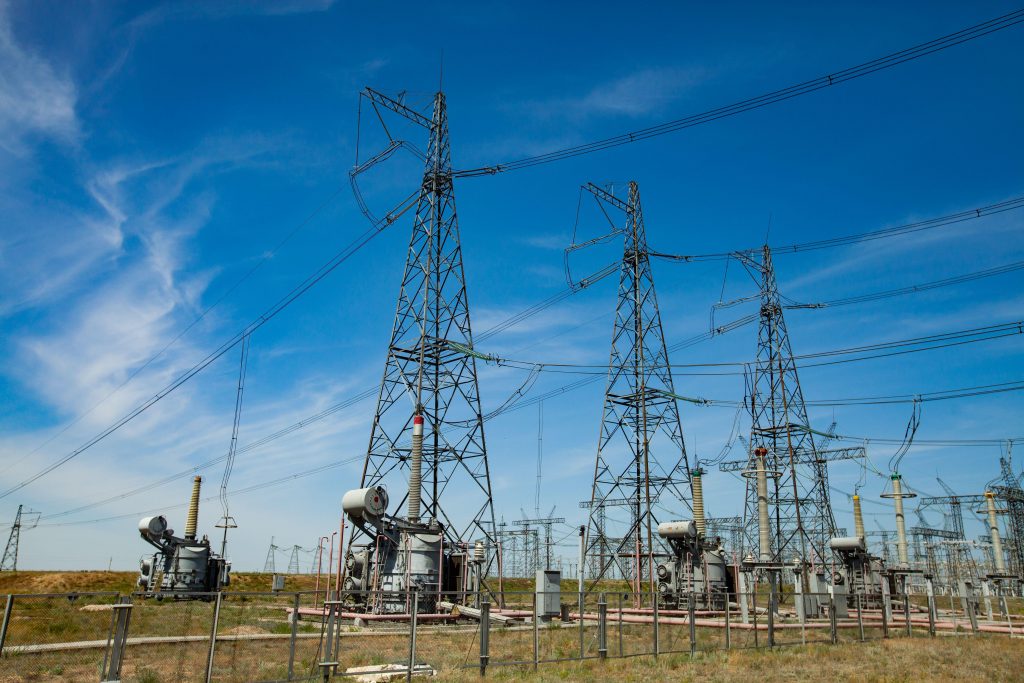NUR-SULTAN
Kazakhstan wants to reform its energy sector in order to avoid disruption in electricity supply and sees potential in nuclear power plant construction.
Millions of people were left without power after a huge blackout hit three Central Asian countries – Kazakhstan, Uzbekistan and Kyrgyzstan – after a major power line was disconnected in Kazakhstan last month.
The grids of the three ex-Soviet republics are interconnected, and via Kazakhstan are linked to the Russian power grid which they can use to cover unexpected shortages. But Kazakhstan’s North-South power line, which links densely populated southern Kazakhstan and its two neighbours to major power stations in northern Kazakhstan and the Russian network, was disconnected, Reuters reported.
The power blackout hit the country’s largest city, Almaty, and the southern cities of Shymkent, Taraz, and Taldyqorghan.
Electricity had been restored some days later, but officials made clear that the problem was deeper and should be resolved as soon as possible.
Kazakhstan’s President Kassym-Jomart Tokayev said the country’s energy security must be addressed urgently.
“I do not understand why responsible persons diplomatically evade answers to questions about the construction of a nuclear power plant. But it must be said bluntly: without clean nuclear energy, we will lose the entire economy, not to mention investments, we will lose regional leadership,” he told a government meeting earlier this month.
“We desperately need electricity and nuclear clean energy. You can’t follow the lead of populists who don’t understand economic realities.”
His message was heard and the energy minister said the country would implement projects to boost electricity production, including construction of a nuclear power plant.
“Given the upcoming shortage of electricity, the need to reduce dependence on coal generation due to the global environmental agenda, the depreciation of production facilities, as well as the huge potential of Kazakhstan in the development of nuclear energy in the country, the construction of a nuclear power plant seems to be the most promising solution,” Bolat Akchulakov told a news conference this week.
He added that construction could take up to 10 years and, among other things, it was necessary to determine the location for the future facility.
“This is a rather long process that we need to start now,” Akchulakov said.
In December last year, NuScale Power and Kazakhstan Nuclear Power Plants Limited Liability Partnership (KNPP) announced that they had agreed to explore the deployment of NuScale VOYGR small modular reactor (SMR) power plants in Kazakhstan.
The first suggestion to build a new nuclear power plant was expressed in 1997. The new plant was supposed to replace the decommissioned power unit of the Mangistau nuclear power plant, which operated from 1972 to 1999. Since the the late 1990s, negotiations have led nowhere.
OTHER PROJECTS
According to the Energy Ministry, electricity is produced in Kazakhstan by 214 power plants of various forms of ownership. The available capacity of power plants was 20.1 gigawatts (GW). At the same time, the operating capacity as of February 11 is about 15 GW, the difference between the available and working capacity is due to planned and emergency repairs at obsolete energy sources and the non-inclusion of renewable energy facilities in the balance sheet.
In 2021, there was a sharp increase in electricity consumption to 113.89 billion kilowatt-hours (kWh), 6.1 percent up from a year earlier. The volume of electricity generation in 2021 amounted to 114.4 billion kWh.
Akchulakov attributed the sharp rise to consumption by crypto-currency operations — with many companies moving to Kazakhstan in the past year after China banned their operations. Many used equipment requiring rates of electricity consumption, much higher than most domestic users and sometimes round the clock.
To solve the problems with power shortages, Kazakhstan plans to build seven generating units with a total capacity of about 3,050 megawatts (MW) by 2026 in the southern regions. Some of those units will be sold through auctions.
In addition, the Energy Ministry has concluded 13 investment agreements with existing energy-producing companies in order to reconstruct and expand generating equipment. That will boost electric capacity by an additional 1,600 MW.
The country also wants to develop its hydropower industry and produce about 1,500 MW at stations in the next eight years.
According to the Energy Ministry, electricity consumption will increase to 152.9 billion kWh by 2035, while the average annual growth in electricity consumption in the period 2021-2035 will increase by 2.7 percent.
It means that 17.5 GW will be required by 2035 to cover the needs of the economy and the population, the ministry said.

